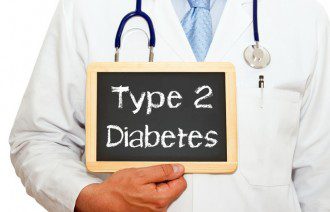Guest Writer for Wake Up World
If you have type 2 diabetes, you already know your blood sugar levels can get too high. Your body develops a problem called insulin resistance where it doesn’t use insulin normally. While your pancreas can create insulin to offset the issue, that only works so well. And while the rate of diabetes seems to be levelling off in the U.S., this is still a very serious issue. [1]
If you have type 2 diabetes, here are some things you should really know (and do).
1. Get Mental Health Coaching
For those living with type 2 diabetes, depression is more common than you think. Depression is a serious issue that can interfere with the ability of people to take care of themselves, reducing the motivation to exercise, eat healthy, or even take medications.[2] Many times, these things are crucial to managing the disease. That’s why mental health coaching can be so important; it could not only help with depression, but also reduce blood sugar levels. Your body and mind will thank you!
[pro_ad_display_adzone id=”110028″]
2. Eat a Better Diet
Another easy thing you can do is change your eating habits. A recent study suggests eating better over time—choosing more fruits and vegetables or eating whole grains, for example—could reduce your chances for Type 2 diabetes by about 20 percent. [3] No idea where to start? Here are some diet choices you might like, but remember to always talk with your doctor before making any changes—especially if you’re taking medication or insulin:
Since diabetes is associated with carbohydrate intolerance, a low carb diet could be a great option for reducing blood sugar and lowering the risk for heart disease. [4] Some evidence suggests lowering your salt to lower your risk for heart disease by half. [5] Unless you’re a vegan, eating more eggs could be a great way to lower your risk for type 2 diabetes. [6] Adding beneficial herbs like rosemary and oregano to your meals could work in much the same way as medications used to control blood sugar. [7]
3. Exercise
When a person already has type 2 diabetes, excess sugars and fats in the blood make cardiovascular risks higher. While exercise has always been a popular common-sense prescription, one study suggests exercise might be most effective after a meal.[8] But it’s not just adults that can benefit, of course! Why not take time as a family for some after-dinner exercise? And kids should also think about putting down those digital distractions, too. One study suggests “heavy use of electronic media […] especially watching too much TV and videos, was linked to higher levels of (cardiovascular and type 2 diabetes) risk factors in children.”[9]
4. Reduce Your Stress Levels
Are you facing lots of deadlines at work? Workplace stress could even be a factor for type 2 diabetes. For the first time, researchers have found a possible connection between the two with the latest study suggesting people under high stress levels at work are almost 45 percent more likely to develop type 2. [10] Looking into meditation can be a great help.
One Final Thought
Remember, you can make changes in your life to get your type 2 diabetes under control, but act now to protect your overall health! One study suggests people with type 2 could perform worse on “cognitive tests measuring abilities involved in the control of emotions, behaviors and thought.” [11] Another comments “women with diabetes may be predisposed to more advanced stage breast cancer.” [12]
So what do you do for your type 2 diabetes? Tell us about it in the comments.
-Dr. Edward F. Group III, DC, NP, DACBN, DCBCN, DABFM
Article References
- [1] Geiss, L. S. et al. Prevalence and Incidence Trends for Diagnosed Diabetes Among Adults Aged 20 to 79 Years, United States, 1980-2012. JAMA. 312 (12).
- [2] American Association of Diabetes Educators. Mental health coaching improves outcomes for people with diabetes, depression. ScienceDaily.
- [3] American Diabetes Association. Improving diet quality reduces risk for type 2 diabetes. ScienceDaily.
- [4] Feinman, R. D. et al. Dietary Carbohydrate restriction as the first approach in diabetes management. Critical review and evidence base. Nutrition. 31 (1).
- [5] Horiakwa, C. et al. Dietary Sodium Intake and Incidence of Diabetes Complications in Japanese Patients with Type 2 Diabetes – Analysis of the Japan Diabetes Complications Study (JDCS). The Journal of Clinical Endocrinology & Metabolism. 99 (10).
- [6] Virtanen J. K. et al. Egg consumption and risk of incident type 2 diabetes in men: the Kuopio Ischaemic Heart Disease Risk Factor Study. American Journal of Clinical Nutrition.
- [7] Bower, A. L. et al. Bioactive Compounds from Culinary Herbs Inhibit a Molecular Target for Type 2 Diabetes Management, Dipeptidyl Peptidase IV. Journal of Agricultural and Food Chemistry. 62 (26).
- [8] Heden, T. D. et al. Post-dinner resistance exercise improves postprandial risk factors more effectively than pre-dinner resistance exercise in patients with type 2 diabetes.Journal of Applied Physiology. 118 (5).
- [9] Väistö, J. et al. Physical activity and sedentary behaviour in relation to cardiometabolic risk in children: cross-sectional findings from the Physical Activity and Nutrition in Children (PANIC) Study. International Journal of Behavioral Nutrition and Physical Activity. 11 (1).
- [10] Huth, C. et al. ob Strain as a Risk Factor for the Onset of Type 2 Diabetes Mellitus: Findings From the MONICA/KORA Augsburg Cohort Study. Psychosomatic Medicine. 76 (7).
- [11] Corita, V. & Hall, P. A. Executive Function in Adults With Type 2 Diabetes: A Meta-Analytic Review. Psychosomatic Medicine.
- [12] Lipscombe, L. L. et al. The association between diabetes and breast cancer stage at diagnosis: A population-based study. Breast Cancer Research and Treatment.
Previous articles by Dr. Group:
- How Turmeric Keeps You Looking Young
- 7 Toxins Harming Your Brain Right Now
- Top 5 Foods for the Pineal Gland
- 6 Things You Must Know About Colloidal Silver
- The Importance of a Kidney Cleansing Diet
- The 9 Best Herbs for Lung Cleansing and Respiratory Support
- 7 Best Foods to Support Kidney Function
- Lung Cleansing With Peppermint Oil
- Seven Facts You May Not Know About Coconut Oil
- 10 Best Herbs for Boosting Female Sex Drive
About the author:
 Dr. Edward F. Group III (DC, ND, DACBN, DCBCN, DABFM) founded Global Healing Center in 1998 and is currently the Chief Executive Officer. Heading up the research and development team, Dr. Group assumes a hands-on approach in producing new and advanced degenerative disease products and information.
Dr. Edward F. Group III (DC, ND, DACBN, DCBCN, DABFM) founded Global Healing Center in 1998 and is currently the Chief Executive Officer. Heading up the research and development team, Dr. Group assumes a hands-on approach in producing new and advanced degenerative disease products and information.
Dr. Group has studied natural healing methods for over 20 years and now teaches individuals and practitioners all around the world. He no longer sees patients but solely concentrates on spreading the word of health and wellness to the global community. Under his leadership, Global Healing Center, Inc. has earned recognition as one of the largest alternative, natural and organic health resources on the internet.
For more information, please visit Global Healing Center.
[pro_ad_display_adzone id=”110027″]







